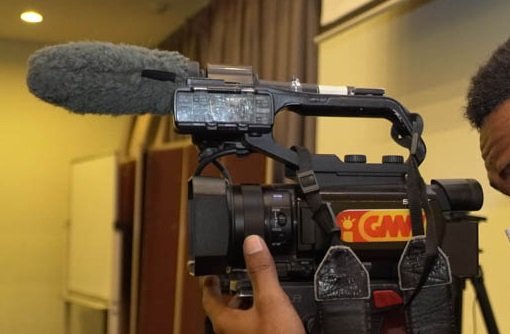
Timor-Leste’s civic space is rated as ‘narrowed’ by the CIVICUS Monitor, which is the second-best rating for a country. Fundamental freedoms have generally been respected by the Timorese authorities and the government has created an enabling environment for human rights defenders. Journalists are mostly free to report the news although a few have faced police harassment. Freedom of peaceful assembly is respected in practice, although the law places some unjustified restrictions on protests.
A report by Freedom House in 2024 has rated Timor-Leste as ‘free’ with a score of 72 out of 100.
In April 2024, the Government of Timor Leste engaged in discussions with the Secretary-General of ASEAN on fulfilling all the criteria set out in the Roadmap for Timor-Leste’s Full Membership in ASEAN which was adopted during the 42nd ASEAN Summit in Labuan Bajo, Indonesia. Timor Leste initially sought membership to the regional bloc in 2011 but the country’s membership has experienced lengthier delays.
In recent months, the country’s ranking in the Reporters Without Borders (RSF) world press freedom index dropped. Teachers were detained for holding a demonstration at the Ministry of Education while the government extended its ban on martial arts groups.
Expression
Press freedom ranking drops
Timor-Leste slipped ten places in Reporters Without Borders (RSF) world press freedom index published in May 2024. It is now ranked in 20th place out of 180 countries and its score dropped from 84.49 to 78.92. Nevertheless, it still remains one of the leading countries in Asia for press freedom.
RSF said that at present, with many publications in the Tetum language, Portuguese and even English, the country’s media are among the freest in the region. Articles 40 and 41 of the constitution protect freedom of the press and expression. Journalists are usually free to report the news and are rarely the targets of harassment or physical attacks.
Although the 2009 penal code decriminalised defamation, journalists involved in legal disputes are threatened by the misuse of article 285, which penalises “slanderous denunciation.” Journalists are exposed to some forms of pressure that limit their freedom, including legal proceedings, intimidation, police violence and public denigration of the media by politicians.
A culture of deference and respect for hierarchy continues to permeate journalism, to the point that some editors are content to reproduce the official reports of press conferences. The influence of the Catholic Church, followed by more than 95 percent of the population, deters journalists from covering some sensitive subjects, such as the emancipation of women, the right to abortion or paedophilia in the clergy.
Peaceful Assembly
Teachers detained for holding demonstration
On 12th February 2024, The Timor Leste National Police (PNTL) detained 10 teachers for holding a demonstration at the Ministry of Education Building without obtaining a permit from the Dili District Police Command.
Dili District PNTL Commander, Orlando Gomes, said that the teachers involved in the peaceful demonstration were immediately questioned in accordance with applicable law. He said the demonstrators tried to enter the Ministry of Education building without permission from the civil security team. Therefore, the police intervened to stop and detain the teachers.
It was reported that the 10 teachers included 4 women and 6 men. A teacher who took part in the demonstration, Veronica dos Santos, said that they had come to speak with the Minister of Education about their contracts and the problems they were facing, because the Minister of Education had ignored them for months. She said the police shouted and immediately arrested them.
The Law on Freedom of Assembly and Demonstration (No. 1/2006) governs the management of assemblies. While the law only requires organisers to notify the police of planned protests, the PNTL continue to interpret the law as requiring the organisers to obtain permission. The police have used this as a basis to restrict or disrupt several protests of students and activists.
Association
Government extends ban on martial arts groups
Timor-Leste bans martial arts, citing an increase in violence — but trainers and advocates are fighting back - ABC News https://t.co/Z8AE5QT3b3
— MyMartialArtsTV (@MyMartialArtsTV) May 11, 2024
In May 2024, the government of Timor-Leste announced the extension of the ban on martial arts groups until November 2024. The initial ban imposed in November 2023 stemmed from concerns about violence or possible links between martial arts and violent acts. Prime Minister Xanana Gusmão said the ban would give the police and regulatory bodies time to inspect clubs across the country and carry out "special crime prevention".
Introduced by Indonesia during its occupation, the practice of martial arts is incredibly popular in Timor-Leste. Some Timorese involved in martial arts groups became clandestine members of groups supporting guerilla fighters during the occupation. Following the country's 2002 independence, some groups migrated to politics, sparking sectarian violence. Others went into gang activity.
The move by the Gusmão government has been met with outrage by martial arts leaders and advocates. Fernando Da Costa, the former president of Timor-Leste's Martial Arts Regulatory Commission, said the country's history involving martial arts groups showed regulation of the practice was needed. But, he said, a ban "ignored the true essence of the practice." Samuel Antonio Guterres, a leader of local martial arts organisation Ikatan Kera Sakti, said that these days "the direct correlation between martial arts and violence in the community was tenuous."
Monsignor Marco Sprizzi, charge d'affaires at the apostolic nunciature in the capital Dili told the government and the Church not to exclude but to embrace martial arts groups. He added: “They need to be integrated, to be involved, to be included, not to be excluded, not to be thrown away, not to be marginalised.”